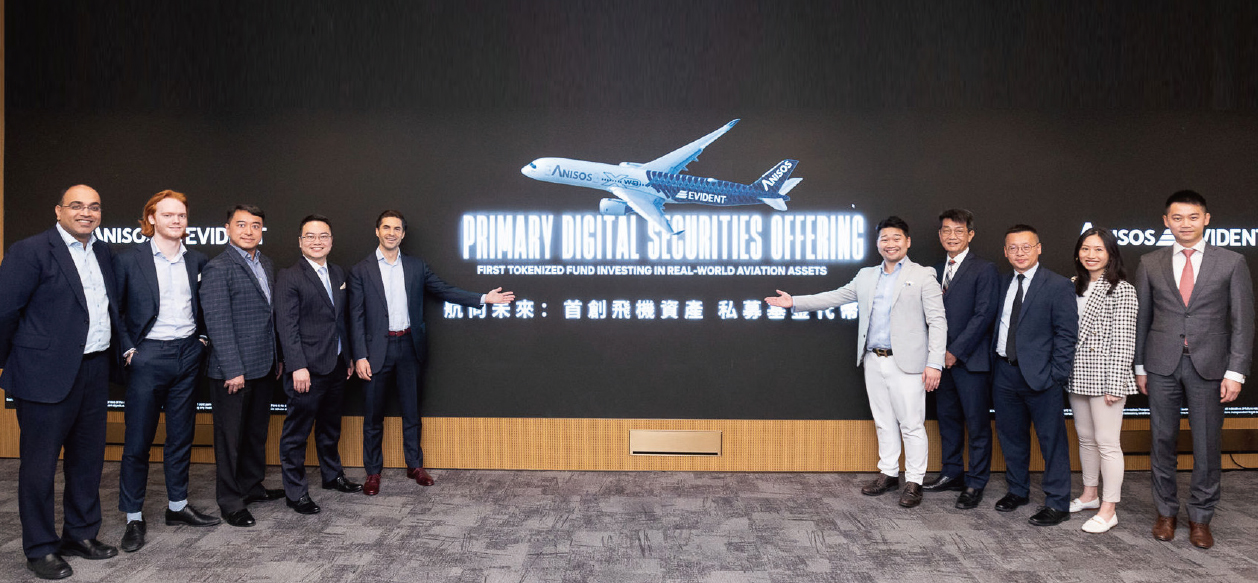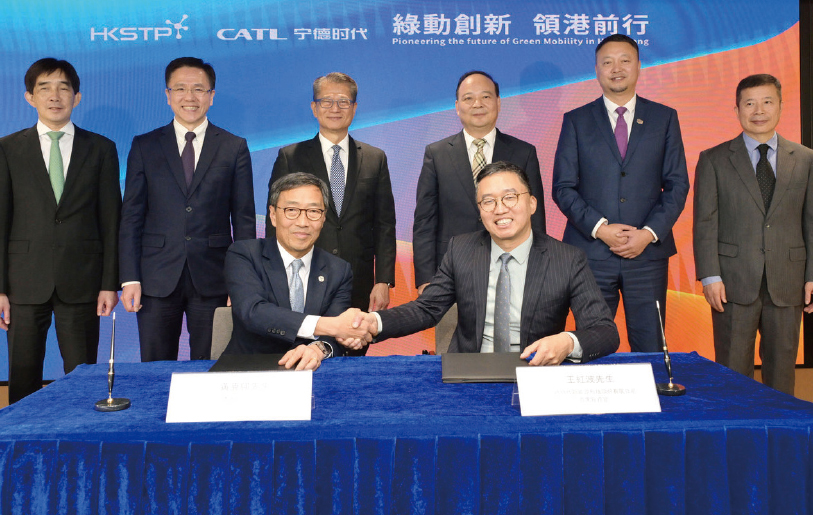The recent Policy Address stated to strengthen the development of headquarters (HQ) economy. The HKSAR Government will explore with the relevant central authorities feasible measures to facilitate Mainland enterprise in setting up their HQ and/or corporate divisions in Hong Kong. It will also introduce a mechanism to facilitate companies domiciled overseas for re‑domiciliation to Hong Kong. These are aimed at attracting enterprises from outside Hong Kong to set up their HQ and/or corporate divisions in Hong Kong.

Alpha Lau
Leverage Hong Kong’s Multiple Advantages to Create a Corporate HQ Hub
In the view of Alpha Lau, Director-General of Invest Hong Kong (InvestHK), further strengthening Hong Kong’s position as a headquarters (HQ) economy will help consolidate its status as a global hub for finance, transportation, trade and aviation, thereby attracting more new funds, new technologies and top talents.
Support I&T development and harness inherent advantages
 Hong Kong’s entrepreneurial ecosystem is becoming increasingly thriving, and the authorities strongly support I&T. Lau believes that the aforesaid vibes can attract technology companies and start-ups to use Hong Kong as an ideal base to expand their business. “So far, there have been many successful examples, such as Prophesee, a French sensor chip company, and UISEE Technologies (Beijing), an AI driverless technology company, both of which have decided to set up their international HQ in Hong Kong. UISEE is also considering setting up its R&D centres in Hong Kong to focus on providing technical support for overseas development.”
Hong Kong’s entrepreneurial ecosystem is becoming increasingly thriving, and the authorities strongly support I&T. Lau believes that the aforesaid vibes can attract technology companies and start-ups to use Hong Kong as an ideal base to expand their business. “So far, there have been many successful examples, such as Prophesee, a French sensor chip company, and UISEE Technologies (Beijing), an AI driverless technology company, both of which have decided to set up their international HQ in Hong Kong. UISEE is also considering setting up its R&D centres in Hong Kong to focus on providing technical support for overseas development.”
She added that since the beginning of this year, Hong Kong has attracted many companies to set up their HQ in Hong Kong through the assistance of InvestHK. These include EVIDENT Platform Services Limited, a licensed fintech company, which set up its global HQ, and Hanover Displays, a UK based company designing and manufacturing passenger information systems for the public transport industry, which set up its regional HQ.
Hong Kong’s simple and transparent tax system as well as low tax rates also attract companies to Hong Kong. Lau said that Hong Kong provides qualifying corporate treasury centres (“CTCs”) with a favourable tax environment and friendly tax policies. Qualifying CTCs can enjoy a concessionary tax rate of 8.25% (i.e. half of the prevailing basic profits tax rate) on profits derived from certain eligible corporate treasury activities, subject to satisfaction of certain conditions.
Actively provide support to drive capital inflows
With the successive introduction of various measures to promote the HQ economy as Hong Kong’s economy further improves, Lau expects it to bring new funds and new technologies, and create job opportunities for Hong Kong, as well as drive demand for business and professional services.
“We have noticed that Mainland and overseas companies are deeply interested in setting up their HQ in Hong Kong. InvestHK will continue to provide various support in addition to formulating relevant measures with other government departments to attract more companies. We firmly believe that this trend of HQ economy will continue to improve in 2024. Our vision is to position Hong Kong as a corporate HQ hub.”
 Tang Hei-wai
Tang Hei-wai
Enhance HQ Economy’s Appeal and Encourage Enterprises to Develop “Dual HQ”
Target the development needs of high-tech companies
 Regarding the “14th Five-Year” Plan’s support for Hong Kong’s development in eight key areas (“eight centres”), Tang said that many of these centres are closely linked with the HQ economy, all of which are driving the demand for many high-quality professional services and related talents. He further said that the current HQ economy is not necessarily limited to Hong Kong’s traditional positioning. In fact, decentralization is a general trend around the world, while the Greater Bay Area’s development pathway is characterised by high-quality, high-tech or new industries. Hong Kong can consider developing into a new HQ in these new economic activities.
Regarding the “14th Five-Year” Plan’s support for Hong Kong’s development in eight key areas (“eight centres”), Tang said that many of these centres are closely linked with the HQ economy, all of which are driving the demand for many high-quality professional services and related talents. He further said that the current HQ economy is not necessarily limited to Hong Kong’s traditional positioning. In fact, decentralization is a general trend around the world, while the Greater Bay Area’s development pathway is characterised by high-quality, high-tech or new industries. Hong Kong can consider developing into a new HQ in these new economic activities.
Abandon “small government” mindset and proactively attract enterprises
In Tang’s view, it is time to change the “small government, big market” mindset, especially in the face of competitors from neighbouring regions. For example, Singapore and some Mainland cities have already launched a series of incentives to attract more leading companies or key industries to set up their HQ or branches there. Hong Kong will fail to offer attractive “incentives” if it remains passive.
Tang said that developing the HQ economy can bring many substantive economic benefits. First, it will attract more highly educated and experienced professionals. Second, it will directly boost the rental market in the CBD and reduce the vacancy rate of Grade A office spaces. Lastly, it will promote the diversified development of Hong Kong’s economy and further solidify its “super connector” role. He stressed that today’s trade involves many professional services such as finance and insurance, and trade procedures and management also incorporate a large amount of digital technology. These are all new HQ activities. The authorities can focus on attracting companies with related businesses to set up their HQ in Hong Kong. This could “contribute to Hong Kong’s GDP, help its real estate sector, support its rental market, and attract talents to it.”
Looking ahead to future development, Tang said frankly that in developing Hong Kong’s economy at this stage, we must avoid having separate policy bureaus rolling out some piecemeal policies as this will lead to the use of a lot of ammunition without showing any results. “We need to formulate a holistic strategy and through systematic policy interaction, we can achieve steady economic growth for Hong Kong.




